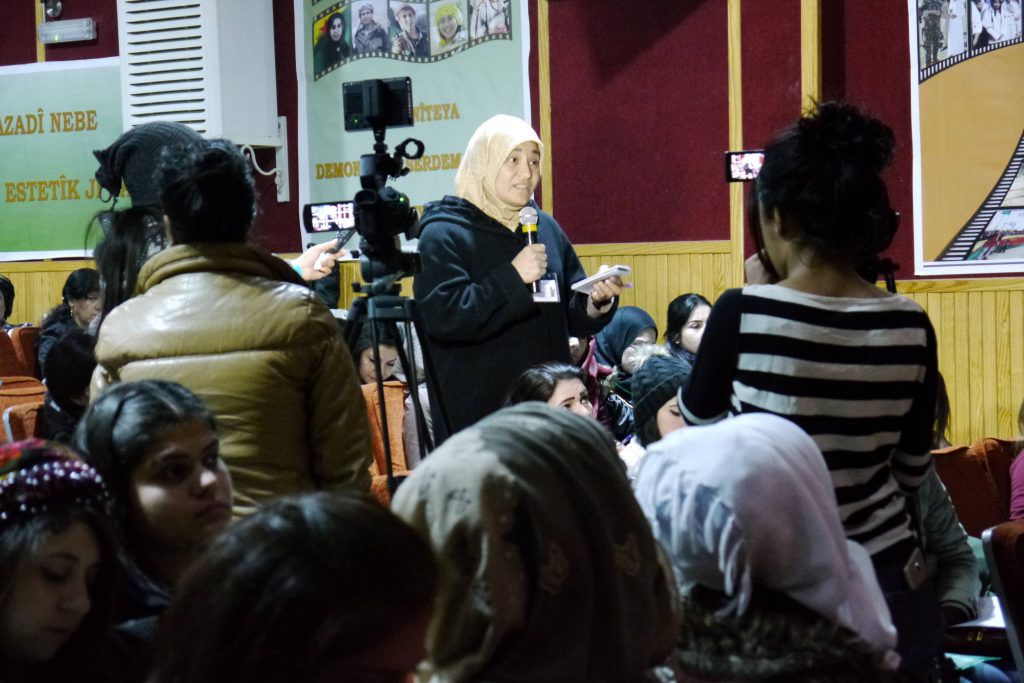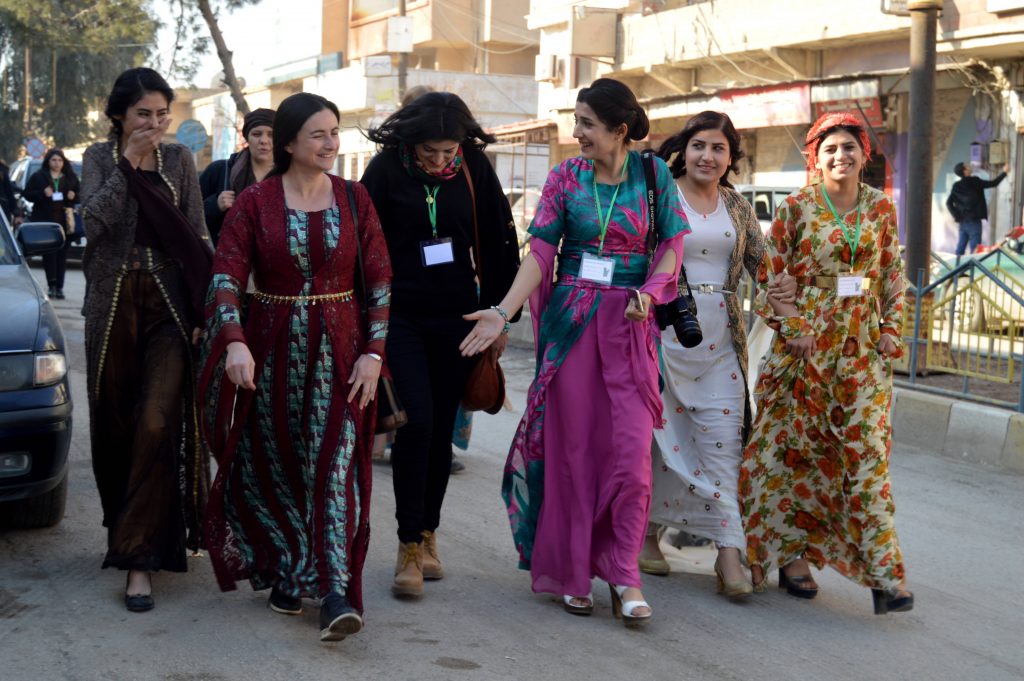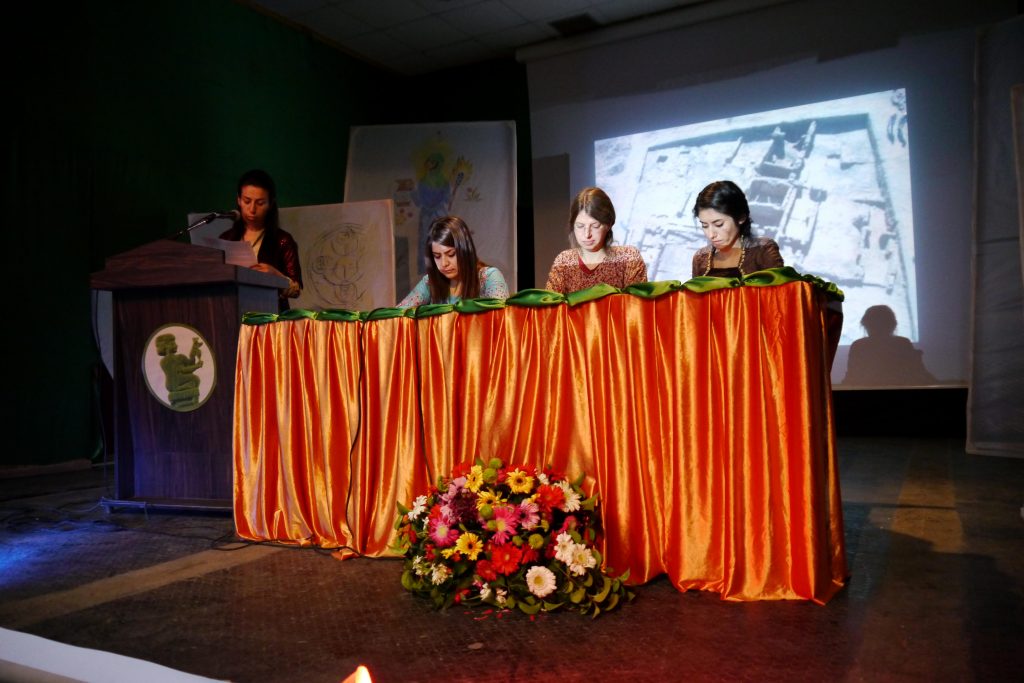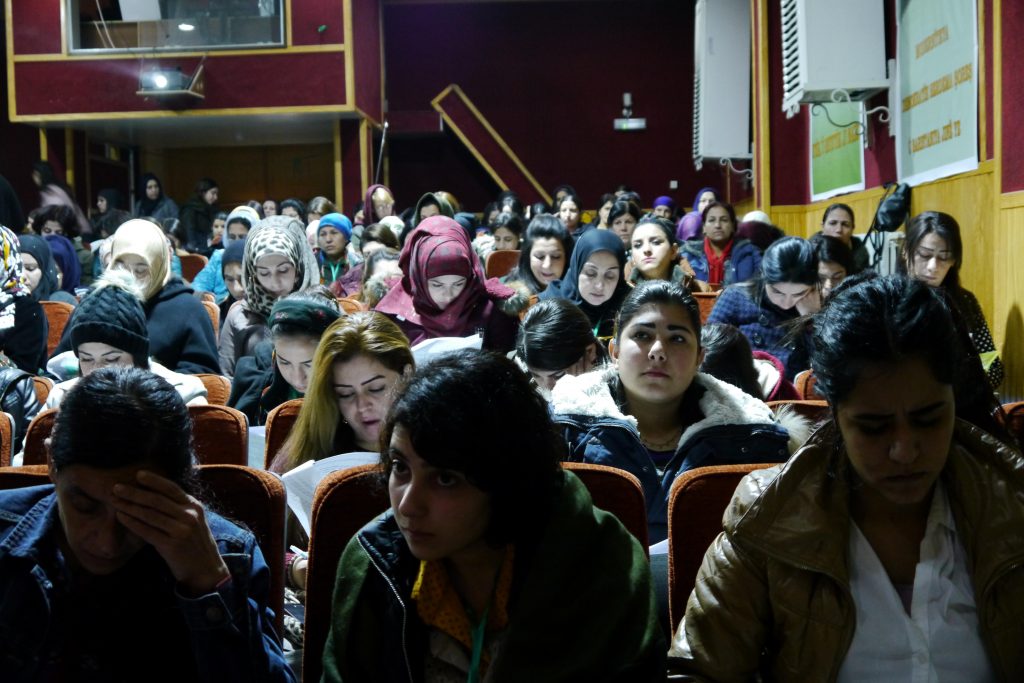The first-ever conference of Jineology in Northern Syria, held in the city of Derek, ended on Saturday 13th January. In attendance were hundreds of women of all ethnicities and religions from across Northern Syria, as well as women from all four parts of Kurdistan and across the world.
On this second day of the conference, documents were read on the research done in many areas including the hidden history of the oppression of women, delving into thousands of years of societal changes, using archeological artefacts excavated from many ancient towns across Northern Syria, such as figurines of the mythological Goddess of love and political power, Ishtar.

Research on societal problems and effects of recent history during the rule of the Syrian regime, the occupation of ISIS, as well as the effect of the democratic revolution spreading across Northern Syria, were also presented.
The perspectives of Jineology towards building a democratic society, including how to combat sexism within families, alternatives for economy and health, and self-protection of gender, ethnic, and religious identities, were just some of the topics researched and read to the participants of the conference.
After each topic, women had the opportunity to criticise and propose areas of research for Jineology, many of which were suggesting more education be available and centres to be opened in various towns.
A Yezidi woman explained how they have always played a leading role in their society, so proposed that more research could be done on the history of women in Shengal.
Many women also shared their views on life before and after the revolution. One, in particular, remembered that when men used to talk politics, as a woman even just sitting to listen, they would be sent out of the room. They had no place in politics whatsoever. Now women are represented at 50% at every level in the democratic structures.

Another, coming from one of the many Kurdish families who were for generations denied citizenship under the Syrian regime, had no rights to study at school and had to pay bribes in order to do so. They couldn’t even dare to think about studying in their own language. Now she sees Kurdish songs on television, and a conference of women discussing the future of multi-national, multi-religious, equal and free society.
In the closing speech, it was said that this conference has shown how far Jineology has come, but also that it is necessary to continue working. She ended with a question posed by Abdullah Ocalan: “How do you want to live?”
Our reply is: We want to live free.
By Kimmie Taylor

ARTICLES IN OTHER LENGUAGE
French: Jineolojî: poursuivre la Révolution des femmes au Rojava
German: Jineoloji: „Den Erfolg der Revolution verteidigen”
Spanish: El objetivo de Jineolojî: la creación de una vida libre
